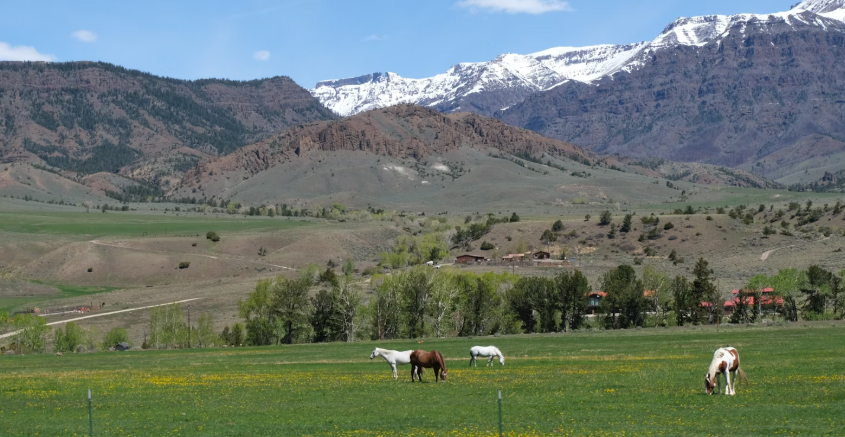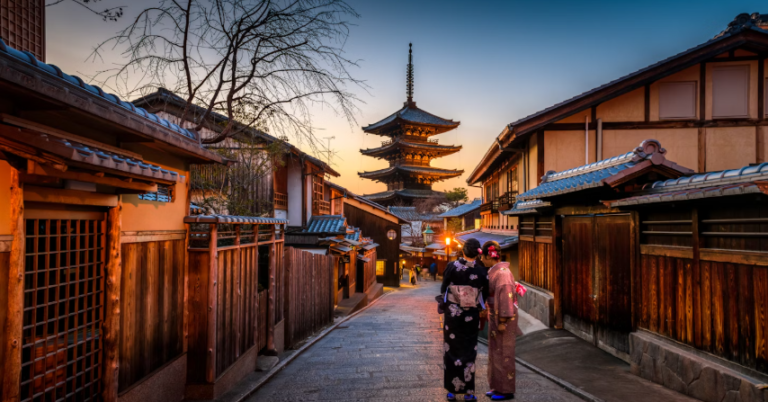What is Carbon Neutral Bhutan – Climate Promise to the World
Imagine a country so green that it actually cleans the air for other nations. What is carbon Bhutan? It is a statistical anomaly nestled in the Himalayas between China and India. It is a small kingdom that has achieved something remarkable that no other country in the world has done. Bhutan isn’t just carbon neutral—it’s carbon negative, meaning it removes more greenhouse gases from the atmosphere than it produces.
What is Carbon Neutral Bhutan?
What is Carbon Neutral Bhutan exactly? It’s a country that has made environmental protection its top priority, utilizing its vast forests and renewable energy resources to combat climate change. Understanding what Carbon Neutral Bhutan is helps us see how a small nation is making a massive difference for our planet. Let’s explore how this incredible country achieved the impossible and what we can learn from its success. Now, let’s dive into what makes Bhutan so special.
What Does Carbon Negative Actually Mean?
Before discussing Bhutan’s achievements, it is essential to understand some key terms. Carbon neutral means a country releases the same amount of carbon dioxide it removes from the air. Think of it like a balanced scale—what goes out equals what comes in. However, Bhutan has gone beyond this balance.
Carbon negative means Bhutan actually removes MORE carbon dioxide than it creates. Their forests act like giant vacuum cleaners, sucking up carbon dioxide not just from Bhutan but also from neighboring countries. In fact, Bhutan’s forests absorb approximately three times more carbon dioxide than the country produces in total. This makes Bhutan a hero in the fight against climate change. With that foundation in place, let’s explore how they did it.
The Secret Ingredient
Bhutan’s Magnificent Forests
Bhutan’s most significant weapon against climate change is its extensive forests. The country has made protecting trees a part of its constitution—the highest law of the land. By law, at least 60% of Bhutan must remain forested for perpetuity. Currently, about 72% of the country is forested, which is truly impressive.
These forests are home to incredible wildlife like snow leopards, red pandas, and Bengal tigers. However, they also serve as massive carbon sinks, absorbing carbon dioxide from the atmosphere each year. The government prohibits anyone from cutting down these forests for profit or development. This constitutional protection ensures that future generations will inherit a green and healthy environment. Speaking of smart decisions, Bhutan’s energy choices are equally impressive.
Powering Progress with Clean Energy
Bhutan’s Clean Energy Champion
Bhutan doesn’t burn coal, oil, or gas to create electricity. Instead, the country uses the power of its rushing mountain rivers to generate hydroelectric power. This renewable energy source produces zero carbon emissions and provides more electricity than Bhutan needs.
The country exports this extra clean energy to India and other neighboring countries, helping them reduce their carbon footprints as well. By selling hydroelectric power, Bhutan earns money while assisting other countries to reduce their pollution. It’s a win-win situation that benefits everyone involved. These wise energy choices connect directly to their broader environmental policies.
Other Green Initiatives
Bhutan has implemented many other programs to stay carbon negative:
- Free electricity for farmers in rural areas to improve their lives sustainably
- Subsidies and incentives for people who buy electric vehicles instead of gas-powered cars
- A ban on exporting timber to protect forests from commercial logging
- Programs that promote energy-efficient appliances in homes and businesses
- Education campaigns teaching citizens about environmental conservation
These initiatives show that Bhutan takes climate action seriously at every level. But what drives all these efforts? The answer lies in a unique philosophy.
Gross National Happiness
A Different Way of Measuring Success
Most countries measure success by the amount of money they generate, using a metric called Gross Domestic Product (GDP). Bhutan does things differently. They measure progress using Gross National Happiness (GNH), which considers environmental conservation, cultural preservation, good governance, and sustainable development.
This means that Bhutan’s government makes decisions based on what makes people happy and healthy, not just what generates the most revenue. Environmental protection is integral to this philosophy because people can’t be pleased in a polluted and damaged world. GNH prioritizes nature and people over profits, fostering a society that values balance and sustainability. This unique approach has earned Bhutan recognition worldwide.
Bhutan’s Climate Promise to the World
Making History at Global Climate Conferences
In 2009, Bhutan made a bold promise at the COP 15 climate conference in Copenhagen. The country pledged to remain carbon neutral forever, regardless of its economic development. This was a huge commitment that amazed world leaders.
Bhutan reaffirmed this promise at the COP 21 Paris Climate Summit in 2015, where nearly 200 countries agreed to collaborate in combating climate change. While other nations struggle to reach net-zero emissions, Bhutan has already surpassed this goal by becoming carbon-negative. The country demonstrates that economic growth and environmental protection can coexist. Their success raises essential questions for other nations.
Challenges and Realities
Despite its success, Bhutan faces real challenges. As a developing country, it must strike a balance between environmental protection and improving living standards for its 800,000 citizens. Building roads, schools, and hospitals requires development that could increase emissions.
Climate change also threatens Bhutan directly. Melting glaciers in the Himalayas are creating dangerous glacial lakes that could burst and flood nearby villages. Changing weather patterns affect farming and water supplies. However, Bhutan remains committed to staying carbon negative even as it modernizes. These challenges make their achievement even more impressive. Now, let’s address some common questions people have.
Frequently Asked Questions
What does it mean if a country is carbon neutral?
A carbon-neutral country balances the amount of greenhouse gases it releases with the amount it removes from the atmosphere. This balance means the government isn’t adding extra pollution to the air. Countries achieve this by reducing emissions, utilizing renewable energy sources, planting trees, and conserving natural carbon sinks, such as forests and wetlands.
Which city in Bhutan is carbon neutral?
While Bhutan as a whole is carbon negative, the capital city, Thimphu, leads the way in urban sustainability. Thimphu has implemented green building standards, promotes walking and cycling, limits traffic, and maintains extensive green spaces. The city reflects Bhutan’s national commitment to environmental protection in an urban setting.
Is Bhutan the most eco-friendly country?
Bhutan is undoubtedly among the most eco-friendly countries in the world. It is unique as the only carbon-negative nation. However, other countries also show strong environmental commitment. Costa Rica generates nearly 100% of its energy from renewable sources, and Iceland utilizes geothermal power extensively. What makes Bhutan special is its constitutional commitment to keeping 60% of its land forested and its holistic GNH philosophy that puts the environment first.
How Can Other Countries Duplicate a Carbon Neutral Environment?
Other countries can learn valuable lessons from Bhutan’s success:
- Protect existing forests and plant new trees to create carbon sinks
- Invest heavily in renewable energy like solar, wind, and hydroelectric power
- Make environmental protection a constitutional priority that can’t be easily changed
- Implement strong policies that discourage fossil fuel use and encourage clean alternatives
- Educate citizens about climate change and the importance of conservation
- Measure success differently by considering environmental and social factors, not just economic growth
- Provide incentives for green technologies like electric vehicles and energy-efficient buildings
While Bhutan’s small size and unique geography make some strategies easier, every country can adapt these principles to its own situation. The key is a strong political will and a long-term commitment to sustainability over short-term profits.
Final Thoughts
What We Can Learn from Bhutan
Bhutan’s carbon-negative achievement demonstrates that protecting the environment and improving people’s lives can be achieved simultaneously. This small Himalayan kingdom indicates to the world that, with strong leadership, clear values, and consistent policies, seemingly impossible environmental goals can become achievable.
We don’t all need to live in Bhutan to make a difference. Each of us can learn from their example by making environmentally conscious choices in our daily lives. Whether it’s supporting renewable energy, protecting local green spaces, reducing waste, or opting for sustainable products, small actions add up to significant changes.
Bhutan reminds us that we must think beyond money and consider what truly matters—clean air, healthy forests, abundant wildlife, and a livable planet for future generations. Their success story isn’t just about one small country. It’s a message of hope showing that humans can reverse environmental damage when we make it a priority.
As climate change threatens our world, Bhutan stands as a beacon of what’s possible when a nation commits to protecting the environment at all costs. Their carbon-negative status isn’t just an achievement—it’s a challenge to the rest of the world to do better, aim higher, and put our planet first.
References
Government of Bhutan. “Bhutan: A Carbon Negative Country.” Royal Government of Bhutan, 202United Nations Framework Convention on Climate Change (UNFCCC). “Bhutan’s Intended Nationally Determined Contribution.” COP 21 Paris Climate Summit, 2015.
Centre for Bhutan Studies & GNH Research. “Gross National Happiness Index.” Thimphu, Bhutan, 2024.
World Bank. “Bhutan Climate Change and Development Report.” World Bank Group, 2024.
International Union for Conservation of Nature (IUCN). “Forest Conservation in Bhutan: Policy and Practice.” 2023.
Asian Development Bank. “Bhutan Renewable Energy Sector Assessment.” 2024.
Climate Action Network. “Carbon Negative Nations: The Bhutan Model.” 2024.
What is Carbon Intensity? | San Joaquin Renewables. https://sjrgas.com/what-is-carbon-intensity/
CleanTech Terms Explained: Carbon Offsetting | Startup Tips | SigmaOS. https://sigmaos.com/tips/startups/cleantech-terms-explained-carbon-offsetting
The Impact of Climate Change on Australia and the Importance of Sustainable Living – Sustainable Living Association Indonesia – Planetary Citizens. http://planetarycitizens.org/the-impact-of-climate-change-on-australia-and-the-importance-of-sustainable-living/
(2018). Converting landfill gas to an energy investment project at Al Dhafra. MENA Report, (),
The Travel Team
(w) rovingwithrachele.com
(e) rachele@rovingwithrachele.com







